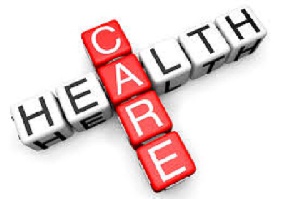One in seven representing 14% of Africans pay bribe or induce officials to access health services, according to a new survey.
The new findings from Afrobarometer said almost half of Africans go without needed health care while “citizens across 36 African countries rank health care as their second-most-important national problem and priority for additional government investment.”
The findings which was released on World Health day (April 7) said: “Public ratings of government performance in improving basic health services have worsened over the past decade: Almost half of Africans say their government is doing “fairly” or “very” badly."
The new report, titled “Despite gains, barriers keep health care high on Africa’s priority list,” is based on nearly 54,000 interviews in 36 African countries in 2014/2015.
Key findings:
- On average across 36 countries, Afrobarometer fieldworkers found health clinics in 62% of all survey enumeration areas (EAs) (Figure 1). Urban EAs (74%) are more likely to have clinics than rural zones (53%).
- Almost half (49%) of all Africans say they or a family member had to go without medicine or medical care “once or twice,” “several times,” “many times,” or “always” in the year preceding the survey (Figure 2).
- Among those who accessed health care during the previous year, four in 10 (42%) found it “difficult” or “very difficult” to get the care they needed.
- One in seven (14%) of those who accessed health services paid a bribe or did a favour to obtain the needed service.
- Across 36 countries, close to half (46%) of citizens say their government is performing “fairly badly” or “very badly” in improving basic health services. Across 18 countries tracked since 2005, negative evaluations have increased by 13 percentage points over the past decade (Figure 3).
- On average across 36 countries, Africans rank health care as their second-most-important problem. In 31 of 36 countries, health care ranks either first or second on the list of citizens’ priority sectors for additional government spending (Figure 4).
- On average, nearly half (45%) of Africans are opposed to paying more taxes or user fees in exchange for increased government spending on health care.
- By itself, higher presence of health clinics does not appear to improve citizens’ experiences and perceptions of health-care service delivery.
General News of Thursday, 7 April 2016
Source: starrfmonline.com

















